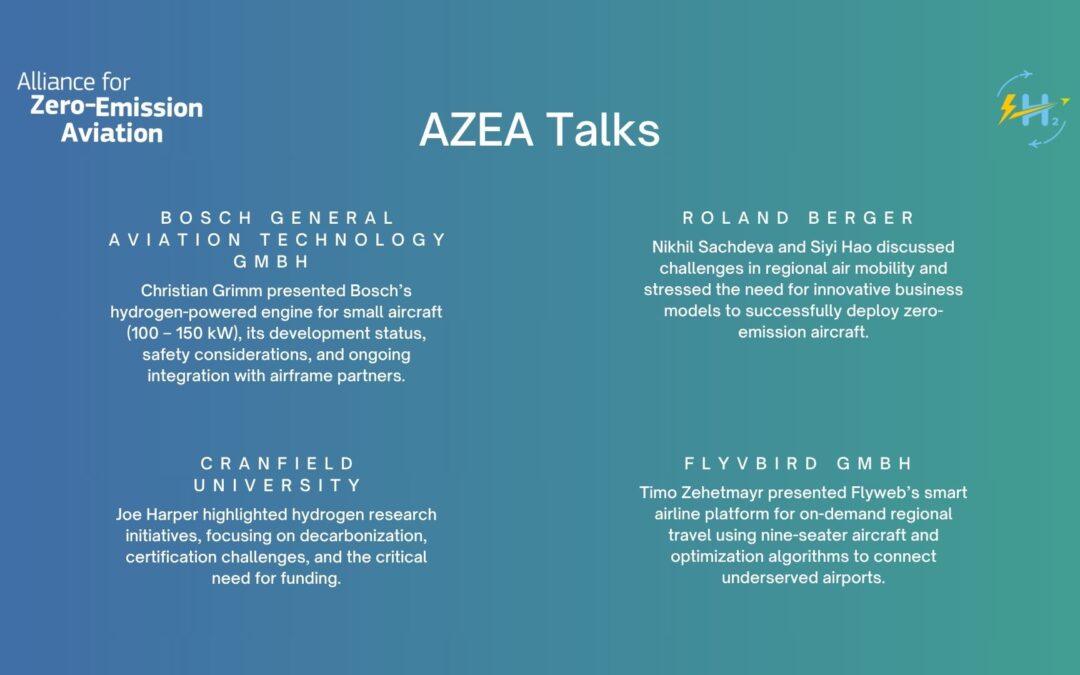As a part of WP3 2nd AZEA talks were held online, June 11,2025.
The session focused on the current state and future of sustainable regional aviation, particularly zero-emission technologies and business model innovation. The event featured four presentations from key players in the aviation and consulting sectors.
Number of Participants: 49
Number of Presentations: 4
Topic: Innovations and Business Models for Sustainable Regional Aviation
Summary:
The AZEA Talks session focused on the current state and future of sustainable regional aviation, particularly zero-emission technologies and business model innovation. The event featured four presentations from key players in the aviation and consulting sectors.
Main Presentations:
- Bosch General Aviation Technology GmbH – Christian Grim presented Bosch’s hydrogen-powered engine for small aircraft (100 – 150 kW), its development status, safety considerations, and ongoing integration with airframe partners.
- Roland Berger – Nikhil Sachdeva and Siyi Hao discussed challenges in regional air mobility and stressed the need for innovative business models to successfully deploy zero-emission aircraft.
- Cranfield University – Joe Harper highlighted hydrogen research initiatives, focusing on decarbonization, certification challenges, and the critical need for funding.
- Flyvbird GmbH – Timo Zehetmayr presented Flyweb’s smart airline platform for on-demand regional travel using nine-seater aircraft and optimization algorithms to connect underserved airports.
Key Discussion Points:
- The technical readiness and safety of hydrogen-powered propulsion.
- Resistance to innovation from current aviation stakeholders and the importance of reshaping value chains.
- The synergy between new technologies and business model innovation creates strong market demand.
- The role of universities and industry partnerships in supporting certification and deployment of hydrogen technologies.
- Smart, flexible regional mobility as a viable model for near-term zero-emission aviation.
Conclusions and Next Steps:
- There is strong momentum behind zero-emission regional aviation, but success depends on technological integration, supportive regulatory frameworks, and viable business strategies.
- Greater industry collaboration and financial support are crucial for scaling hydrogen-based solutions.
- Future AZEA Talks sessions will continue to showcase member initiatives and foster dialogue on sustainable aviation.

